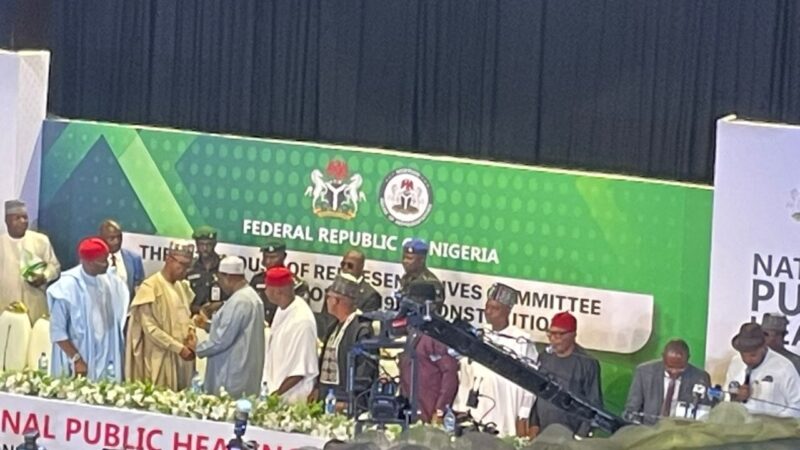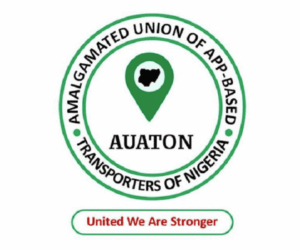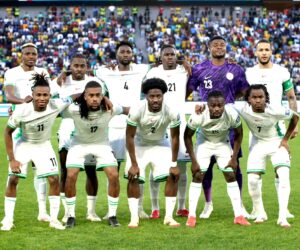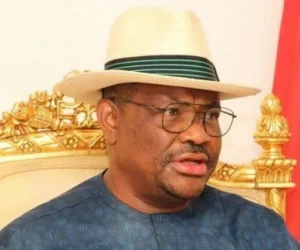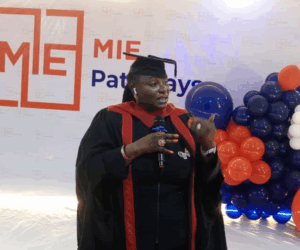Calls for inclusion and guaranteed representation for women and persons with disabilities (PWDs) dominated Monday’s national public hearing organised by the House of Representatives in Abuja on the ongoing constitution review.
The House Committee on Constitution Review organised the hearing to provide Nigerians the opportunity to make input in the review of the document.
Committee Chairperson and Deputy Speaker of the House, Benjamin Kalu, had, during the opening ceremony of the exercise, described the process as “the culmination of months of public consultations across the six geopolitical zones,” during which citizens, civil society groups, traditional leaders, security agencies, and professional bodies submitted memoranda and testimonies.
Some attendees at the event insisted that Nigeria’s democracy cannot deepen without deliberate steps to end systemic exclusion.
“Not just on women’s day”
A former senator, Florence Ita-Giwa, challenged lawmakers to move beyond symbolic gestures in supporting women. She criticised what she described as “token attention” to women’s issues, often restricted to symbolic recognition during international commemorations.
“We cannot continue to support women only on Women’s Day.
Her comments drew applause from several women’s advocacy groups present, many of whom had called for the Reserved Seats Bill to be passed into law.
Call for disability rights as protected category
The President of the Network of Women with Disabilities, Lois Auta, described the plight of women with disabilities in Nigeria as “triple jeopardy,” stressing that they face exclusion, discrimination, and invisibility in every sector of governance.
“As you see right now, we are at a zero per cent level of participation in governance. We are excluded. We are underrepresented in every sector. In Kenya, a visually impaired woman is a senator. What is Nigeria doing?” Ms Auta asked.
She called for urgent reforms to move the country from “exclusion to inclusion, from inclusion to participation, and from participation to representation.”
While appreciating the 10th National Assembly leadership for proposing five per cent reserved representation for PWDs, Ms Auta argued that such a measure must not remain on paper.
“Women with disabilities can be governors, senators, members of the House of Representatives, and ministers. Do not forget, there is productivity in disabilities. Include us now,” she urged.
Grace Jerry, another disability rights advocate, demanded that the constitution explicitly recognise disability as a protected category under the fundamental rights chapter.
She stressed that disability “affects everyone” directly or indirectly, and as such, persons with disabilities must be guaranteed equal opportunities in law.
“The constitution should clearly provide that persons with disabilities shall have the right to special protection by the family, society, and the state. It must also mandate government at all levels to promote sign language, braille, and other assistive communication, as well as social and economic integration,” Ms Jerry said.
She noted that her organisation had already submitted specific recommendations for constitutional amendment and urged lawmakers not to ignore them.
Police Officers’ wives seek representation in security sector
The Police Officers’ Wives Association (POWA) also made submissions, calling for guaranteed representation of women in the security and defence sectors, which they argued have remained male-dominated.
Their representatives demanded constitutional provisions reserving a percentage of leadership positions in the police, military, and paramilitary agencies for women.
“Currently, the constitution does not mandate women’s representation in security agencies. This must change. Such inclusion should also extend to the highest offices in the land, including the president and governors,” it said.
The group argued that gender balance in security would strengthen institutional performance and sustainability.
Political women leaders push for passage of reserved seats bill
A coalition of women leaders across political parties submitted a memorandum strongly backing the Reserved Seats Bill, describing it as a “historic opportunity” to correct Nigeria’s gender imbalance.
They argued that despite women being major stakeholders in politics and governance, structural barriers continue to marginalise them from decision-making.
“This bill is not tokenism. It is about fairness and democratic sustainability. We urge lawmakers to pass it to send a strong message of confidence in inclusive governance,” the memorandum read.
READ ALSO: INVESTIGATION: Road to Alabuga: Shady recruitment of young Nigerian women to Russia
Broader demands
Other stakeholders at the hearing pushed for electoral reforms, stricter rules on party leadership eligibility, and the creation of new states.
Lawmaker emphasises public conviction
A member of the House, while speaking with PREMIUM TIMES, also weighed in on the process.
Abubakar Fulata (APC, Jigawa) reminded participants that, unlike ordinary bills, constitutional amendment bills require two-thirds majority approval in both chambers.
“That is one of the requirements of constitutional review, to afford members of the public an opportunity not only to air their positions but also to convince members of the National Assembly on the relevance of their proposals,” Mr Fulata said.
He stressed that lobbying, consensus-building, and sustained public pressure would be critical for any amendment to scale through.

